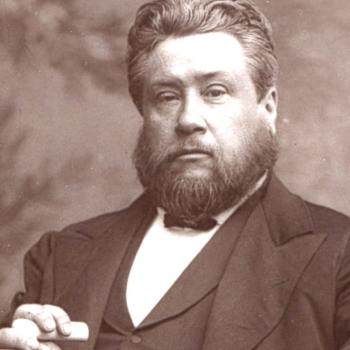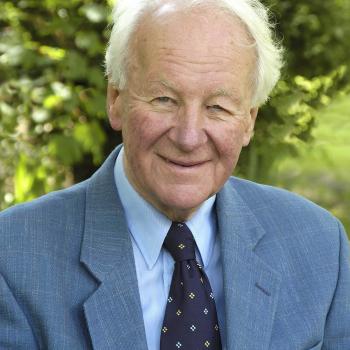Well, I knew it would happen. People on both sides of the great premillennialist versus amillennialist debate sparked by John MacArthur have started throwing Spurgeon quotes at each other. I have been doing my best to stay on the sidelines on this one, and I haven’t even read the rest of Tim’s summaries of the conference. (Certain events have obviously preoccupied me!) I have been trying to resist posting anything new, preferring instead to simply publish “something I prepared earlier” (reference to Blue Peter for all my UK readers).
 But I’m afraid I can’t resist saying just this one thing. Throwing Spurgeon quotes around could last for a millennium, and we still wouldn’t have pinned the Prince of Preachers down to a clearly recognizable modern position. He, like many of us, seems to have thought that wholeheartedly embracing any systematic view of the future to the exclusion of all others was neither wise nor warranted by Scripture.
But I’m afraid I can’t resist saying just this one thing. Throwing Spurgeon quotes around could last for a millennium, and we still wouldn’t have pinned the Prince of Preachers down to a clearly recognizable modern position. He, like many of us, seems to have thought that wholeheartedly embracing any systematic view of the future to the exclusion of all others was neither wise nor warranted by Scripture.
With Phil having laid down the gauntlet with a premillennialist-sounding quote from Spurgeon, it could only be a matter of time before the sleeping giant of the blogosphere — my partner, David Wayne, would reply. And reply he did with a great quote where Spurgeon pours scorn on the premillennial view of Israel, which I understand MacArthur holds.
 As fun as all this is, of course, we must remember that we are called to exposit the Bible, not Spurgeon. For thousands of years we have been trying to understand the end times, and despite MacArthur’s reported claims a week or so ago, a single dominant theory has yet to emerge. The more I reflect on this, the more I think he was just plain wrong to claim there was only one legitimate perspective on this (if that was indeed what MacArthur was saying).
As fun as all this is, of course, we must remember that we are called to exposit the Bible, not Spurgeon. For thousands of years we have been trying to understand the end times, and despite MacArthur’s reported claims a week or so ago, a single dominant theory has yet to emerge. The more I reflect on this, the more I think he was just plain wrong to claim there was only one legitimate perspective on this (if that was indeed what MacArthur was saying).
People joke about “pan-millennialism” (it will all “pan” out in the end!), but I have to say that whilst I have my own theories about eschatology, they are probably my least strongly held theological positions. So let’s cut each other some slack on this one.
I am much more interested about whether we should be optimistic or pessimistic about the future — I wish more people would take me up on explaining their position on that question.
I can’t, however, resist ending the post by sharing the quote from Spurgeon in which David Wayne believes the Prince of Preachers disagrees with MacArthur over Israel:
“Distinctions have been drawn by certain exceedingly wise men (measured by their own estimate of themselves), between the people of God who lived before the coming of Christ, and those who lived afterwards.
We have even heard it asserted that those who lived before the coming of Christ do not belong to the church of God! We never know what we shall hear next, and perhaps it is a mercy that these absurdities are revealed at one time, in order that we may be able to endure their stupidity without dying of amazement. Why, every child of God in every place stands on the same footing; the Lord has not some children best beloved, some second-rate offspring, and others whom he hardly cares about. These who saw Christ’s day before it came had a great difference as to what they knew, and perhaps in the same measure a difference as to what they enjoyed while on earth meditating upon Christ; but they were all washed in the same blood, all redeemed with the same ransom price, and made members of the same body. Israel, in the covenant of grace, is not natural Israel, but all believers in all ages. Before the first advent, all the types and shadows all pointed one way — they pointed to Christ, and to Him all the saints looked with hope. Those who lived before Christ were not saved with a different salvation to that which shall come to us. They exercised faith as we must; that faith struggled as ours struggles, and that faith obtained its reward as ours shall.”
Charles Haddon Spurgeon
UPDATE
David Wayne has also posted on why we should not claim that the church fathers were all premillennialist.
Also, both pastor resources and words a few more won’t hurt have collected links to others posts discussing the matter.











